13 start with A start with A
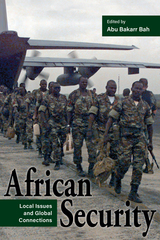

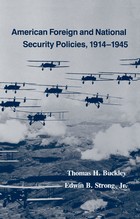
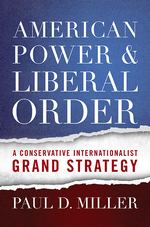
Paul D. Miller offers a tough minded critique of recent trends in American grand strategy. He rejects retrenchment but also the excesses of liberal internationalism. He prescribes a conservative internationalist grand strategy to preserve the American security and leadership in the world while avoiding overstretch.
Originally written before the 2016 US presidential election, this first paperback edition contains a new preface that repositions the book’s argument for the Trump era. Miller explains why President Trump’s nationalist vision for American grand strategy damages US interests and world order. Miller blends academic rigor with his experiences as former member of the National Security Council and intelligence community to offer prescriptions for US grand strategy. He advocates for narrowing regional priorities and focusing on five strategic objectives: balancing against the nuclear autocracies, championing liberalism to maintain a favorable balance of power, thwarting the transnational jihadist movement, investing in governance in weak and failed states, and strengthening homeland security.
This book is a must read for scholars and students of international affairs and for anyone who is concerned about America’s role in the world.

Revolutions and aborted revolutions and bitter civil and "local" wars in the 1980s and since have raised new questions about national security, its definition, and its implementation. Nevertheless, a number of basic philosophical and political issues remain constant at a level deeper than tactical considerations. These are what eight accomplished philosophers, political scientists, Christian ethicists, and policymakers came together to discuss. They ask the fundamental and perduring questions of pacifism, war, intervention, and political negotiation. They focus on such problems as ascertaining the role of the churches in the quest for peace, defining "national interest" and "national purpose," and construing intervention in other that strictly unilateral terms.
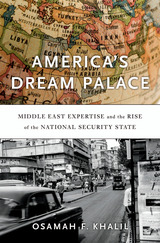
In T. E. Lawrence’s classic memoir Seven Pillars of Wisdom, Lawrence of Arabia claimed that he inspired a “dream palace” of Arab nationalism. What he really inspired, however, was an American idea of the area now called the Middle East that has shaped U.S. interventions over the course of a century, with sometimes tragic consequences. America’s Dream Palace brings into sharp focus the ways U.S. foreign policy has shaped the emergence of expertise concerning this crucial, often turbulent, and misunderstood part of the world.
America’s growing stature as a global power created a need for expert knowledge about different regions. When it came to the Middle East, the U.S. government was initially content to rely on Christian missionaries and Orientalist scholars. After World War II, however, as Washington’s national security establishment required professional expertise in Middle Eastern affairs, it began to cultivate a mutually beneficial relationship with academic institutions. Newly created programs at Harvard, Princeton, and other universities became integral to Washington’s policymaking in the region. The National Defense Education Act of 1958, which aligned America’s educational goals with Cold War security concerns, proved a boon for Middle Eastern studies.
But charges of anti-Americanism within the academy soon strained this cozy relationship. Federal funding for area studies declined, while independent think tanks with ties to the government flourished. By the time the Bush administration declared its Global War on Terror, Osamah Khalil writes, think tanks that actively pursued agendas aligned with neoconservative goals were the drivers of America’s foreign policy.
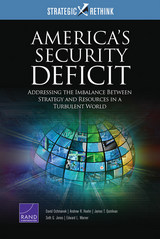

At the beginning of the twentieth century, two British inventors, Arthur Pollen and Harold Isherwood, became fascinated by a major military question: how to aim the big guns of battleships. These warships—of enormous geopolitical import before the advent of intercontinental missiles or drones—had to shoot in poor light and choppy seas at distant moving targets, conditions that impeded accurate gunfire. Seeing the need to account for a plethora of variables, Pollen and Isherwood built an integrated system for gathering data, calculating predictions, and transmitting the results to the gunners. At the heart of their invention was the most advanced analog computer of the day, a technological breakthrough that anticipated the famous Norden bombsight of World War II, the inertial guidance systems of nuclear missiles, and the networked “smart” systems that dominate combat today. Recognizing the value of Pollen and Isherwood’s invention, the British Royal Navy and the United States Navy pirated it, one after the other. When the inventors sued, both the British and US governments invoked secrecy, citing national security concerns.
Drawing on a wealth of archival evidence, Analog Superpowers analyzes these and related legal battles over naval technology, exploring how national defense tested the two countries’ commitment to individual rights and the free market. Katherine C. Epstein deftly sets out Pollen and Isherwood’s pioneering achievement, the patent questions raised, the geopolitical rivalry between Britain and the United States, and the legal precedents each country developed to control military tools built by private contractors.
Epstein’s account reveals that long before the US national security state sought to restrict information about atomic energy, it was already embroiled in another contest between innovation and secrecy. The America portrayed in this sweeping and accessible history isn’t yet a global hegemon, but a rising superpower ready to acquire foreign technology by fair means or foul—much as it accuses China of doing today.
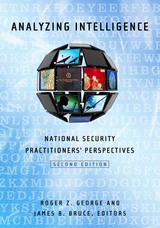
Analyzing Intelligence, now in a revised and extensively updated second edition, assesses the state of the profession of intelligence analysis from the practitioner's point of view. The contributors—most of whom have held senior positions in the US intelligence community—review the evolution of the field, the rise of new challenges, pitfalls in analysis, and the lessons from new training and techniques designed to deal with 21st century national security problems. This second edition updates this indispensable book with new chapters that highlight advances in applying more analytic rigor to analysis, along with expertise-building, training, and professional development. New chapters by practitioners broaden the original volume’s discussion of the analyst-policymaker relationship by addressing analytic support to the military customer as well as by demonstrating how structured analysis can benefit military commanders on the battlefield.
Analyzing Intelligence is written for national security practitioners such as producers and users of intelligence, as well as for scholars and students seeking to understand the nature and role of intelligence analysis, its strengths and weaknesses, and steps that can improve it and lead it to a more recognizable profession.
The most comprehensive and up-to-date volume on professional intelligence analysis as practiced in the US Government, Analyzing Intelligence is essential reading for practitioners and users of intelligence analysis, as well as for students and scholars in security studies and related fields.

Drawing on the individual and collective experience of recognized intelligence experts and scholars in the field, Analyzing Intelligence provides the first comprehensive assessment of the state of intelligence analysis since 9/11. Its in-depth and balanced evaluation of more than fifty years of U.S. analysis includes a critique of why it has under-performed at times. It provides insights regarding the enduring obstacles as well as new challenges of analysis in the post-9/11 world, and suggests innovative ideas for improved analytical methods, training, and structured approaches.
The book's six sections present a coherent plan for improving analysis. Early chapters examine how intelligence analysis has evolved since its origins in the mid-20th century, focusing on traditions, culture, successes, and failures. The middle sections examine how analysis supports the most senior national security and military policymakers and strategists, and how analysts must deal with the perennial challenges of collection, politicization, analytical bias, knowledge building and denial and deception. The final sections of the book propose new ways to address enduring issues in warning analysis, methodology (or "analytical tradecraft") and emerging analytic issues like homeland defense. The book suggests new forms of analytic collaboration in a global intelligence environment, and imperatives for the development of a new profession of intelligence analysis.
Analyzing Intelligence is written for the national security expert who needs to understand the role of intelligence and its strengths and weaknesses. Practicing and future analysts will also find that its attention to the enduring challenges provides useful lessons-learned to guide their own efforts. The innovations section will provoke senior intelligence managers to consider major changes in the way analysis is currently organized and conducted, and the way that analysts are trained and perform.

In a post-Cold War world of political unease and economic crisis, processes of securitisation are transforming nation-states, their citizens and non-citizens in profound ways.
The book shows how contemporary Europe is now home to a vast security industry which uses biometric identification systems, CCTV and quasi-military techniques to police migrants and disadvantaged neighbourhoods. This is the first collection of anthropological studies of security with a particular but not exclusive emphasis on Europe.
The Anthropology of Security draws together studies on the lived experiences of security and policing from the perspective of those most affected in their everyday lives. The anthropological perspectives in this volume stretch from the frontlines of policing and counter-terrorism to border control.
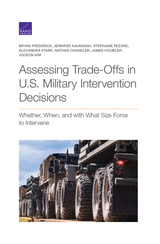
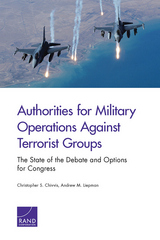
READERS
Browse our collection.
PUBLISHERS
See BiblioVault's publisher services.
STUDENT SERVICES
Files for college accessibility offices.
UChicago Accessibility Resources
home | accessibility | search | about | contact us
BiblioVault ® 2001 - 2024
The University of Chicago Press









